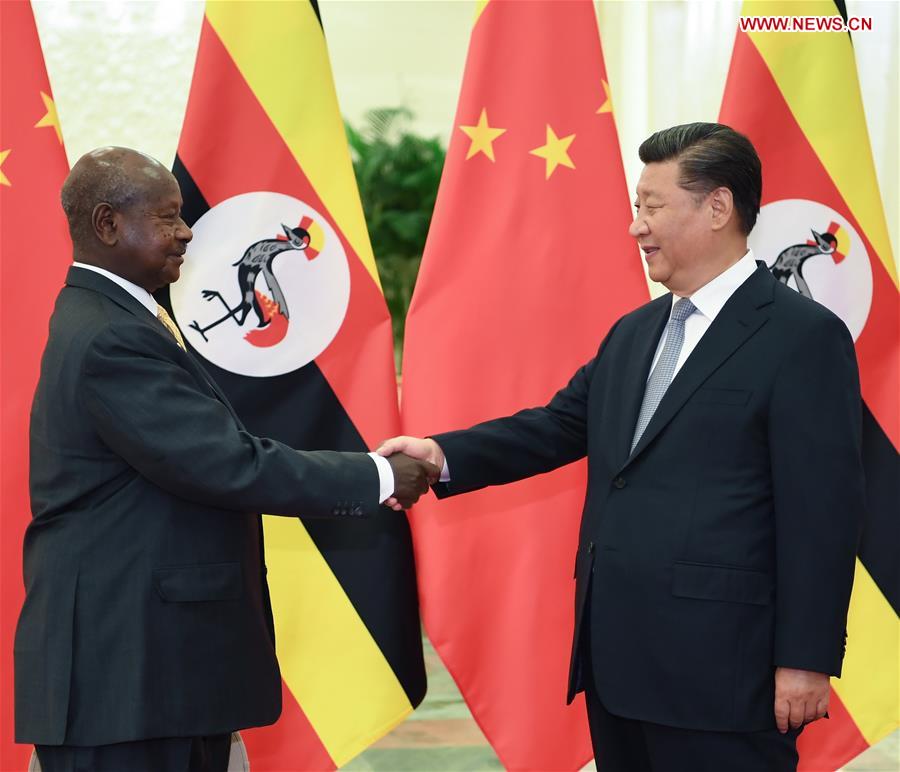Uganda needs to Leverage its Bilateral Relations with China to Maintain its Growth Trajectory

By Musiime George
The past year was a mixture of two emotional hues for Uganda following the enactment of the anti homosexuality law. Whereas proponents of the law celebrated and rejoiced in its enactment, critics and activists alike were concerned that the law would unleash an array of rights concerns in Uganda. However, besides this binary of positions, there was a third group of Ugandans who expressed concerns about the country’s ability to deal with the resulting fallout from the passing of this bill into law. As it would turn out, these fears were justified, as the World Bank Group would later in August 2023 issue a statement announcing plans to halt any further funding to Uganda as additional measures and mechanisms for grievance redress were deemed necessary. Moreover, in the final quarter of 2023, the Biden administration also announced the removal of Uganda from the Africa Growth Opportunity Act (AGOA) citing gross human rights violations as the reason for the decision to exclude Uganda from the trade pact. While all this was evolving, there was growing concerns about the future of the Ugandan economy and the prospects of attaining the growth targets of Vision 2040 of transforming the country from a peasant to a modern and prosperous economy as the fallout from this law cast a dark shadow over the transformational prospects of the country. This would in turn beg the question; is all hope lost for the country’s economic future?
Nature abhors a vacuum: it is a scientifically accepted position that empty spaces are simply not sustainable and the moment they come about, surrounding matter will always rush in to fill them. We can aptly interpolate this principle of science into the area of international relations and development cooperation just the same way and particularly in the Ugandan case as it seeks to address the fallout from last year’s passing of the Anti homosexuality law. During a Media and Think tanks briefing focusing on the outcomes and future of China-Uganda practical cooperation on March the 28, the Chinese envoy to Uganda H.E Zhang Lizhong reiterated China’s commitment to work with all countries to steer multi-polarity and globalization. Key to this was emphasizing inclusive globalization, which China defines as supporting countries to pursue a development path that is suited to their own national conditions. This is a notion that fits very well with China’s diplomatic principle of non-interference in the internal affairs of sovereign territories.
It is important to note that the People’s Republic of China (PRC) was among the very first countries to establish diplomatic relations with Uganda only nine days after independence. In fact, bilateral relations between both countries have continued to flourish through the years with milestones including but not limited to, large-scale infrastructure projects such as roads, hydropower stations, and cooperation in health, agriculture et cetera. Additionally, Uganda and China have worked together in a diversity of fields covering poverty reduction, education, science and technology, providing assistance and shared experiences to drive comprehensive social and economic development.
Ambassador Zhang Lizhong further reaffirmed China’s continued commitment to joining hands with Uganda in the spirit of cooperation that delivers on the principles of mutual benefit, common development and inclusive progress for both the people of China and Uganda as both countries advance towards building a community with a shared future. As a testament to this, bilateral trade between China and Uganda has been growing progressively over the last 10 years from $600 million to $1.3 billion. Moreover, by the end of 2023, Uganda’s share of this had grown by 19.6% reaching $70M. Meanwhile, as the trade ratios might indicate a deficit for Uganda, this is a working progress and China, guided by its strong belief in a win-win outcome is still dedicated to working with Uganda in addressing this imbalance. For example, this is being done through a number of avenues among which are, a zero tariff treatment for up to 98% of export commodities from Uganda on the Chinese market. China is also collaborating with Uganda to stimulate production through cooperation in areas such as infrastructure through the Belt and Road Initiative (BRI), industrialization, agriculture, health among others.
In an effort to spur industrialization, China has invested in numerous multi-million dollar industrial parks including the Liaoshen industrial park, Mukono industrial park, Shandong Industrial Park, Kehong China-Uganda Industrial Park and Sino-Uganda industrial park in Mbale, Eastern Uganda. This coupled with additional support such as the donation of rice farming and processing machinery and equipment worth $2 million to Butaleja district, medical supplies worth $1 million to fight malaria, all of which have a cumulative impact on the nation’s production capacity are not only likely to increase the country’s export volume but also its ability to meet the local demand. Thus in the presence of zero tariff treatment for Ugandan export commodities on the Chinese market, Uganda stands to gain a lot regarding its efforts to narrow down the trade deficit by leveraging this access to the Chinese market aided by the boost to the country’s industrialization effort. Moreover, coming with all this investment is an increase in the number of Ugandans employed hence improved livelihoods and purchasing power of Ugandans as well, all of which will positively impact on the nation’s GDP along the way.
Therefore, I am among those Ugandans inclined to believe that not all hope is actually lost for Uganda especially as the country deals with its removal from AGOA considering that by June 2023, Uganda’s export to the AGOA market was a paltry $8.2 million in contrast with the over $70 million trade volume with China during the same period. This together with all the other efforts aimed at buttressing Uganda’s production capacity, there is more mileage that can be gained only if Uganda is able to effectively leverage its cooperation and bilateral trade with China by increasing investment in production as well as diversifying and improving the quality of our export products. For as long as we work dedicatedly to bridge this economic gap, we shall not only be able to just stay afloat but to continue growing our economy as we march towards the targets of vision 2040.
George Musiime is a research fellow at the Sino-Uganda Research Centre.
related publications
DWC
Development Watch Centre
Kampala - Uganda
ADDRESS
Plot 212, RTG Plaza,3rd Floor, Office Number C7 - Hoima Road, Rubaga
CONTACT
+256 703 380252
info@dwcug.org



